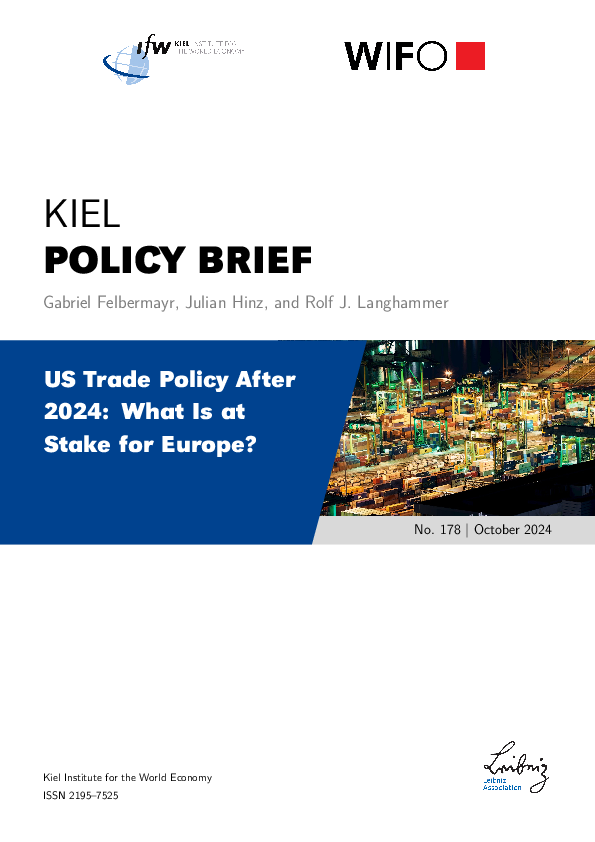Policy Article
US Trade Policy After 2024: What Is at Stake for Europe
Authors
Publication Date
Key Words
Related Topics
Geoeconomics
Americas
China
Europe
USA
Economic & Financial Crises
International Trade
Following the upcoming U.S. elections, the EU should prioritize defending the multilateral trade system, as a collapse in global economic cooperation could impact Europe up to four times more than direct U.S. tariffs alone. Potential U.S. trade policies under either a Harris or second Trump administration are expected to remain protectionist, though Harris would likely adopt a more multilateral stance, while Trump could intensify tariffs and weaken the WTO’s role.
If the U.S. imposes broad tariffs—such as a 10% surcharge on imports and a 60% tariff on Chinese goods—global trade could shrink by 2.5% initially, with greater contractions if trade partners retaliate. While some EU sectors, like high-tech, may see short-term output gains due to relative competitiveness, EU GDP would still decline, with Germany facing GDP losses of up to €6 billion and significant impacts in key sectors like automotive and pharmaceuticals.
In the most severe scenario, a breakdown of the WTO or fragmentation into competing geopolitical blocs would lead to profound economic losses. EU GDP could fall by up to 0.5%, with Germany’s output declining by 3.2%, while China would bear the greatest losses. Given the high stakes, the EU’s priority must be to uphold the global trade system, as the costs of fragmentation far exceed those of a bilateral dispute with the U.S.









